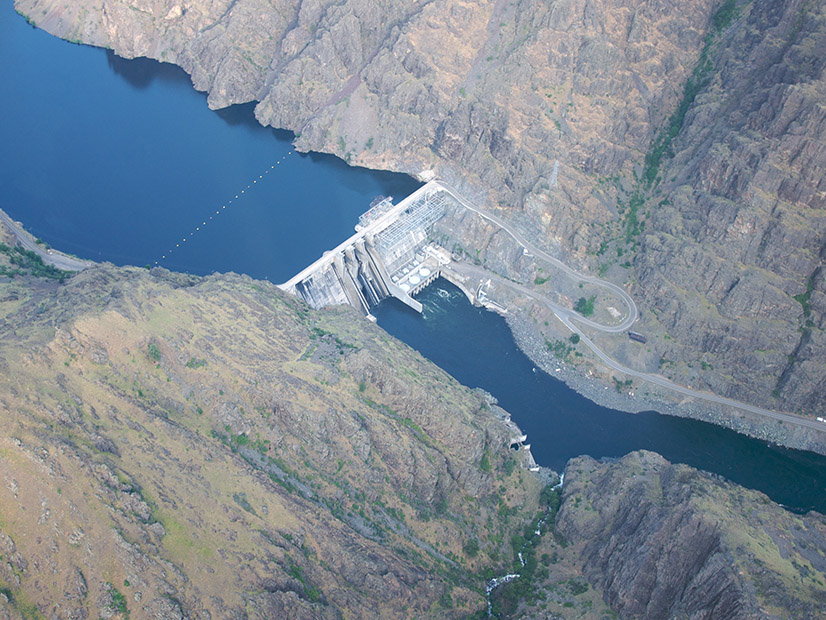
A federal grand jury indicted an Idaho man last week after he allegedly damaged two hydroelectric dams in the state this year, interrupting their service and causing what prosecutors say was over $200,000 in damage.
On June 8, Randy Scott Vail of Meridian, Idaho, shot the Hells Canyon Dam with a firearm, the day before also shooting at the Brownlee Dam, according to the indictment, released Tuesday. Both dams are operated by Idaho Power and provide electricity to customers in Washington, Idaho and Oregon.
Vail was already facing multiple felony charges in state court, having been arrested by the Washington and Adams County sheriff’s offices June 9. A statement from the Adams County sheriff credited law enforcement from two additional counties with helping in the arrest.
Local media, citing the Idaho criminal complaint and probable cause filing, reported that deputies were called to Brownlee Dam around 12:30 a.m. June 9 in response to reports that a man on a white motorcycle had fired shots there and at the Hells Canyon Dam. The deputies spotted a white motorcycle leaving the scene and followed it, leading to a high-speed chase. At one point, the driver reached 80 mph in a 20-mph zone.
When Vail eventually stopped, the deputies found a case on the motorcycle holding two rifles; they also found bolt cutters and cans that appeared to contain gasoline. The state charges against him include attempting to elude an officer and malicious injury to property. Online court records indicate that Vail was committed to custody June 9, with bond set at $250,000.
In a press release, Josh Hurwit, the U.S. Attorney for Idaho, said the shooting caused “significant interruption and impairment of a function of” both dams, with damage to each in excess of $100,000. The Adams County sheriff’s statement said nobody was injured in the incident and no customer outages were reported. The federal charges carry a maximum penalty of 20 years in prison.
The shooting at the dams is the latest in a series of recent violent attacks against U.S. electric infrastructure. Previous incidents include the Dec. 3 gunfire attack on two substations in North Carolina that left 45,000 customers without power for days; no suspects have been identified in the attack. (See FERC Orders NERC Review on Physical Security.) Later in December, police in Washington state arrested two men after they allegedly damaged several electric substations; one of the men later claimed they were trying to disrupt power as part of a robbery plan.
Domestic extremists have become increasingly interested in damaging the grid as well. This year, the Justice Department charged neo-Nazi leader Brandon Russell and one of his followers with planning to disable substations around the Baltimore area in hopes of cutting off power to the city and provoking a race war. (Feds Charge Two in Alleged Conspiracy to Attack BGE Grid.) The Department of Energy released a report in February showing incidents of deliberate physical damage to bulk power system facilities rose by 77% in 2022.
FERC has responded to the growing threat of violence by ordering NERC to review its physical security standards, which the ERO did in a report issued in April. The report was followed by a joint technical conference at NERC’s headquarters in Atlanta on Thursday in which attendees discussed the needs and costs of implementing security at vulnerable facilities. (See FERC, NERC Conference Addresses Security Challenges.)



